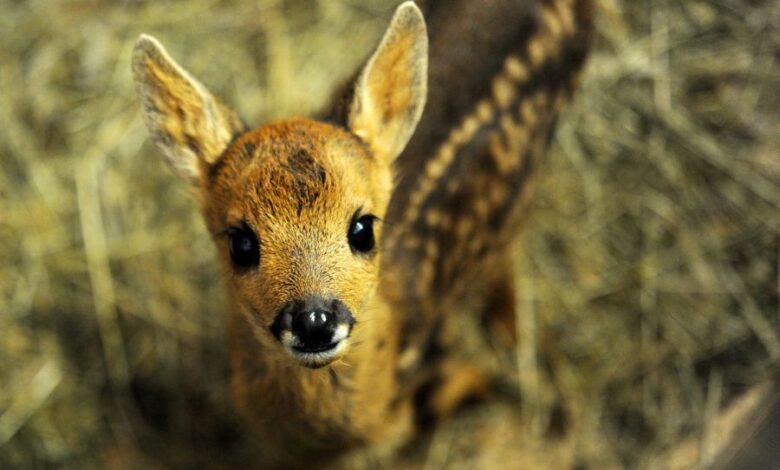What to do if you find a baby deer in Kansas

(Photo credit should read FRED TANNEAU/AFP via Getty Images)
TOPEKA (KSNT) – Wildlife officials in Kansas are warning Sunflower State residents to keep an eye out for fawns and, more importantly, to leave them alone.
The Kansas Department of Wildlife and Parks (KDWP) Game Wardens posted to social media that newborn deer are starting to appear across the state, often unaccompanied by their mother. This is normal, according to game wardens, and the best thing people can do to help these fawns is to leave them be.
Operation WildLife (OWL), a local conservationist group specializing in caring for and releasing injured and orphaned wildlife, also has tips on what to do if you encounter a fawn by itself. Unless the fawn appears to be injured, the best advice is to leave the baby where it is.
Does can birth one to three fawns at a time and have a habit of “parking” them at different locations to better protect them from predators, according to OWL. In the first two weeks of a fawn’s life, they are “bedded down” and left by themselves during the day with the mother returning to care for them once darkness falls.
It is important that people don’t disturb any fawns they find, according to OWL. You are encouraged to not touch it, leave it alone and walk away. You can return in 24 hours to see if the fawn is still there: if it appears cold, weak, thin or otherwise injured, it could be orphaned.
A fawn experiencing problems will have its ears curled down in a sign of dehydration, according to OWL. Even if you suspect a fawn could be starving, you should avoid feeding it as they have sensitive digestive systems and the wrong formula could cause more harm than good. If you find an injured fawn, you can transport it in a laundry basket with the fawn wrapped in a blanket. OWL will accept injured fawns but will act as an intermediate only with the goal of sending them to a rehabber.
If you picked up a fawn that should have been left alone, its mother will return to look for it for up to three days, according to OWL. Return the fawn to where you found it and leave it there for the mother to find.
You should also refrain from trying to raise a fawn on your own as it is not only risky for the animal’s health but also illegal, according to OWL. Deer need to be raised among their own kind to develop the skills necessary for living in the wild and have been known to hurt humans once they grow up.
You can learn more about how to better help deer in the wild by going to OWL’s website by clicking here.
